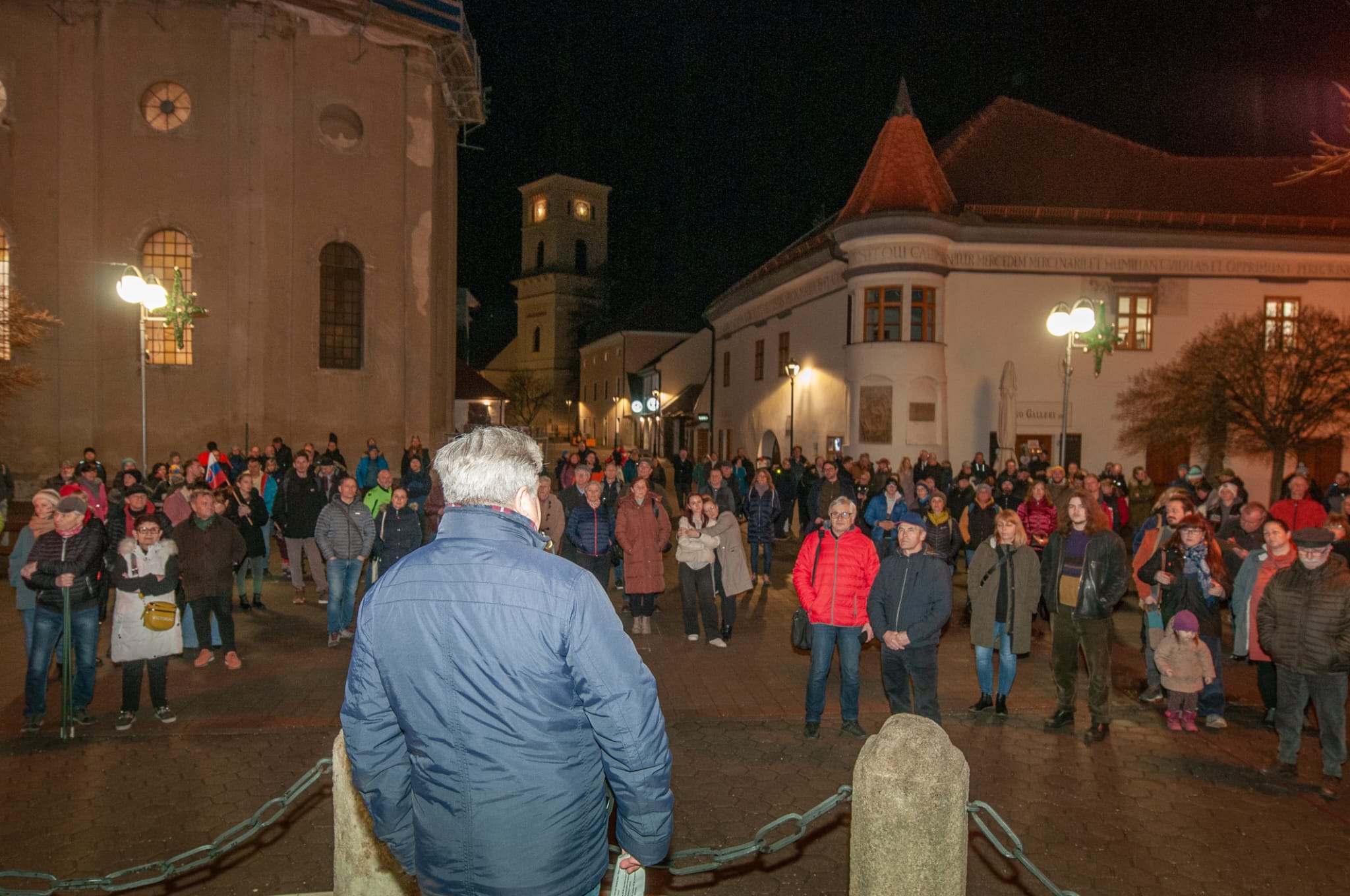14/02/2024
Slovak parliament approves a reform threatening to weaken its rule of law
If Slovakia shuts down its key institutions investigating corruption and white-collar crime, it can have serious consequences for the country as well as for Europe.
On 8 February, the Slovak parliament voted in favour of a bill proposing to close down the country’s key anti-corruption body. The legal reform, proposed by the government of Prime Minister Robert Fico, has caused significant controversy. Multiple local demonstrations have been organised across the country in the past weeks, with protesters highlighting the risk the proposed legislation would pose to Slovakia’s already weakened anti-corruption efforts.
The proposed changes only add to the controversial reputation Fico and his associates have created for themselves over the past years. Their apparent disregard for democratic institutions has angered opposition-minded voters who have been showing their disagreement by organising small local protests across the country, in addition to larger gatherings in Bratislava, Slovakia’s capital.
Elena Kralikova, a retired journalist, organised such protests in Pezinok, a commuter town of about 22,500 people, 25 kilometres from Bratislava. According to her, the new government has been distorting key principles of democracy, justice and liberal values by questioning Slovakia’s membership in the EU, threatening to deny aid to Ukraine, and expressing sympathy towards Putin’s Russia. “This is unacceptable for democratically minded people, which is why we took to the streets and squares.” In early February, local media reported that there were 30,000 protesters in Bratislava, and an additional 60,000 in 29 other cities and towns across the country. The first protest Kralikova organised in her town attracted only a handful of her friends and family, while the second gathering was already attended by 400 people. “We expect a much bigger crowd at the next protest on 15 February”.
The Slovak government has also been warned by the EU prior to the vote. The European Commission perceived the proposed changes to be a threat to Slovakia’s rule of law and has threatened the Slovak government with legal action. Since the anti-corruption body’s tasks include investigating EU-fund fraud, a relatively common occurrence in Slovakia, the EU sees the reform as potentially harmful to its financial interests.
Despite the country’s long-term issues with corruption, the reform would mean closing down of special prosecutor’s office focused on fraud and lower penalties for white-collar crime. Slovakia’s opposition politicians and protesters have criticised the law as its implementation would lead to the closing of a number of ongoing high profile corruption investigations, including those concerning individuals close to the government coalition. Critics also pointed out that the proposed reform has been pushed through unusually fast, without the consultation of legal experts. Fico announced the initiative only weeks after he formed a new government in autumn last year.
The law can now be vetoed by Slovakia’s president, Zuzsana Caputova, who has said she would use all legal options to stop the legislation. However, Fico’s coalition government has enough power to override the presidential veto.
Fico, who became prime minister for the fourth time in October last year, has faced anti-corruption protests in the past and has even been investigated by the anti-corruption body he is now seeking to shut down (the charges against him were dropped in 2022). Fico’s Smer has been the subject of journalistic investigations into the party’s alleged ties to organised crime. In 2018, a journalist conducting such an investigation was shot dead alongside his partner, and the scandal eventually led to Fico’s resignation. Kralikova thinks that, with each controversial decision the government takes, more and more people feel the need to protest publicly. It is unlikely that Fico will resign again in the coming months. On the contrary, he seeks to consolidate his position as his close associate and the leader of the government’s second strongest party Hlas, Peter Pellegrini, will be running in the upcoming presidential elections in March. According to Elena, this is another factor that motivates people to protest. “I believe that those who care about their country will not be silent. We have to protest because presidential elections are coming and, now more than ever, their result will be very important for our country”.
At a time of increasingly frequent disagreements within the EU, Slovakia is closely watched by those who are worried about the EU’s unity, alongside other countries with EU-sceptic leadership such as Hungary. Fico’s statements about Ukraine and Russia have recently kept political analysts occupied. While initially stating he was against sending more aid to Ukraine and imposing further sanctions on Russia, notably during his election campaign, he changed his mind in January and pledged to continue helping Ukraine during a meeting with his Ukrainian counterpart Denys Shmyhal. Similar to Hungary, Slovakia is reliant on EU funding as well as Russian gas. This double dependency has resulted in chaotic policies that can threaten both Slovakia’s rule of law and, in the long term, the EU’s unity.
Veronika Konečná, Head of Russia, CEE & Central Asia Practice
veronika.konecna@aperio-intelligence.com
